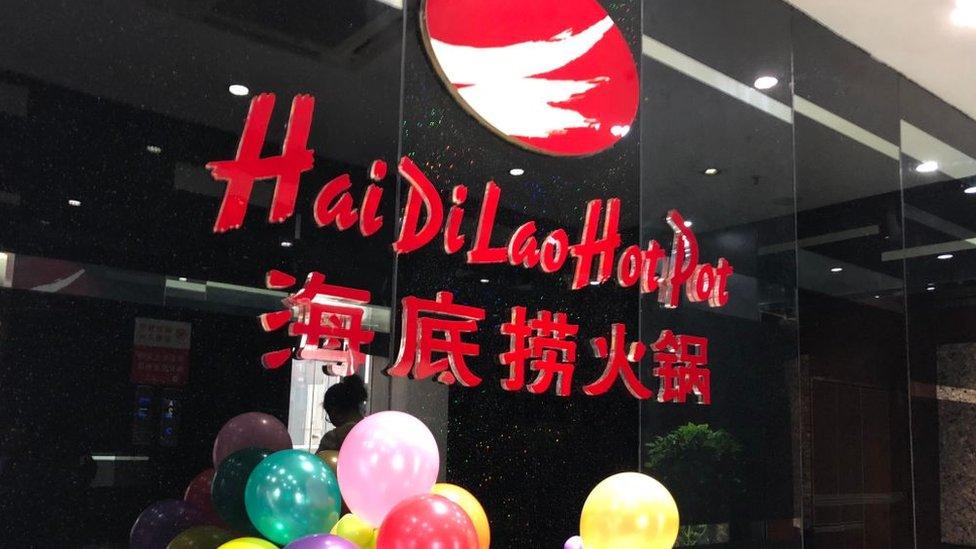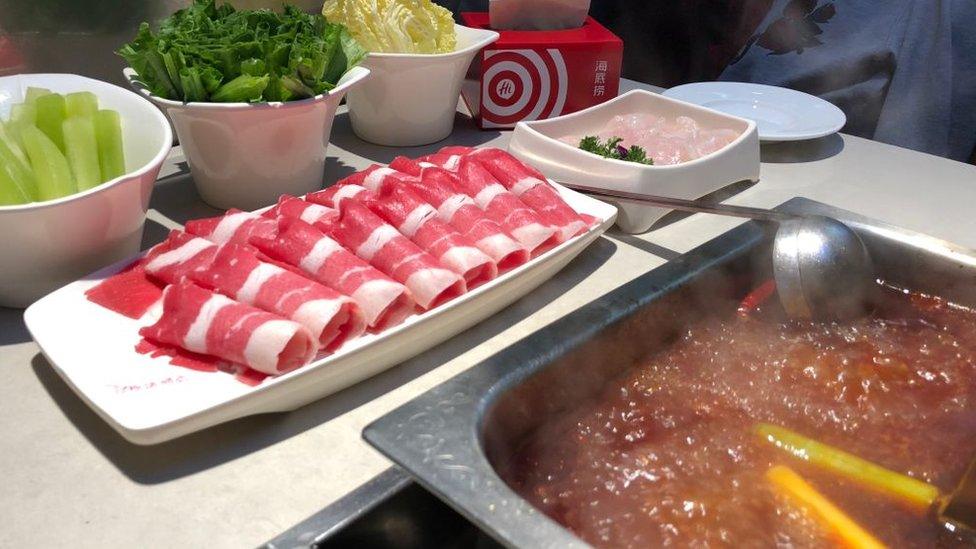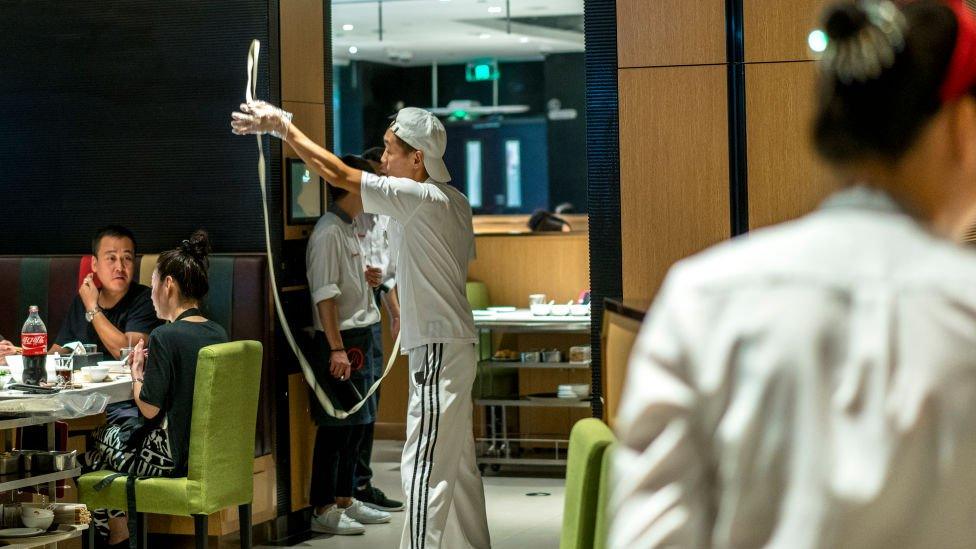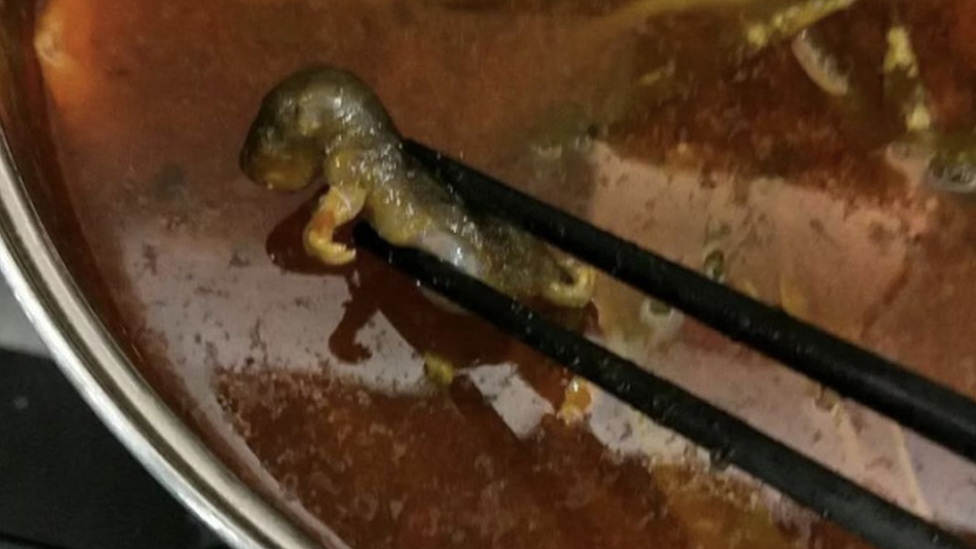Hotpot chain Haidilao on fire ahead of Hong Kong listing
- Published

It has a reputation for keeping customers waiting for more than two hours for a table, and has suffered a couple of very high profile food scandals in China and in Singapore.
But the Beijing-based hotpot chain Haidilao, which has outlets from the US to Japan, has been raising eyebrows for another reason this week.
Haidilao International Holding, the hotpot restaurant's owner, looks like it's on track to raise 7.3bn Hong Kong dollars ($935m; £711m) via its much-talked about initial public offering, external in Hong Kong.
The firm has priced its shares at the top end of the indicated range - HK$17.80 - and analysts say it might end up with a market valuation of as much as $12bn.
Forbes recently estimated that Haidilao co-founder Zhang Yong will have a fortune of as much as $8.3bn, external after the firm has listed - making him one of China's richest restaurant operators.
All this of course depends on how Haidilao's shares perform in the coming months.
Some of the most anticipated tech debuts in Hong Kong this year have disappointed - and analysts say that the food and beverage industry can be just as fickle.
Never heard of hotpot?
Well, it's a pretty common meal in China and across other parts of Asia.

Hotpot restaurants are common across China
Funnily enough, it involves a very big hot pot of broth, which is usually positioned or sunk into the middle of a table.
A lot of other fresh and raw ingredients are available to then cook in the broth, including finely cut meats, vegetables, eggs, tofu and seafood, to name just a few.
Diners delight in popping their choice of ingredients and spices into the hotpot, cooking it up, and sharing it around the table.
Haidilao's restaurants are so popular here in Singapore that several outlets have become renowned for keeping customers waiting for hours - and hours - for a table.
That's not necessarily a good thing, but the international chain has also now become well known for entertaining customers while they wait to eat.
Manicurists are employed to offer a complimentary nail service, there are play areas for children, masseurs offer neck rubs, and some restaurants even have photo booths to print pictures while you wait.
And despite their infamous waiting times, Haidilao reckons it still seats more than 100 million guests a year around the world.

Waiters also entertain guests once seated, showcasing their noodle pulling skills
The growth that Mr Zhang's hotpot chain, which he started in 1994 in China's Sichuan Province, has seen in recent years is also quite something.
The restaurant's global network grew from 112 at the beginning of 2015, to 273 by 2017. By half way through this year it had expanded to 341 outlets, external. And it's still growing.
"As of the latest practicable date, we owned and operated 363 restaurants, which comprised 332 restaurants [on mainland China], and 31 restaurants in Taiwan, Hong Kong and internationally in Singapore, South Korea, Japan and the United States," the firm said in a statement this week.
Research firm Frost and Sullivan said the hotpot chain was the fastest-growing major Chinese cuisine restaurant brand on mainland China, and globally, with revenues jumping 36% between 2016 and 2017, external.
The retail portion of the firm's shares were oversubscribed by more than five times, external, but whether or not investors will invest in the firm for the long term remains to be seen.
Mr Zhang meanwhile seems determined to keep expanding the chain.
About 60% of the money the firm raises through its listing has already been earmarked to finance part of its expansion plan, external - which could include operations as far afield as the UK, Australia and New Zealand.
- Published13 September 2018

- Published27 June 2018

- Published3 June 2018
